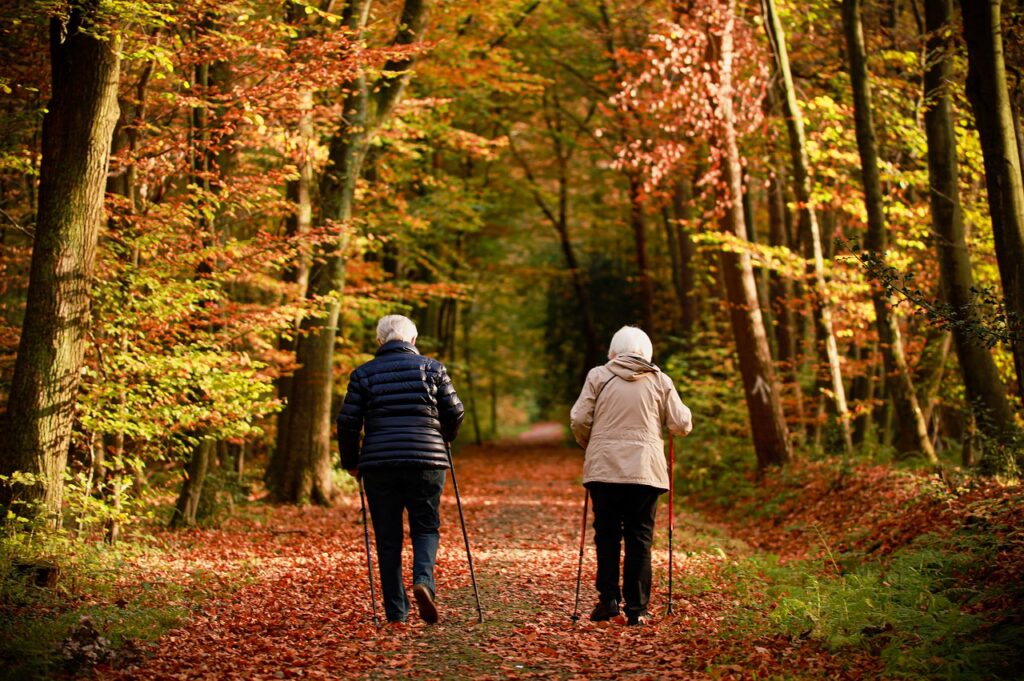COVID-19 is a global commitment that persists to redefine day-to-day lifestyle-related practices in a noteworthy method as the pandemic advances through its various stages. Public health proposals and government actions are taken to abate infection have indirectly influenced food availability, dietary grade, normal daily activities, access to recreational public backdrops, social activities, work, and financial shield. These elements compound over the period to radically transform lifestyle-related demeanours, especially daily eating, activity, and slumber behaviours that are comprehended to be self-sustaining risk characteristics for metabolic complexities such as obesity, diabetes, and cardiovascular illnesses.

ANALYSIS FROM SURVEYS & RESEARCHES
Few initial introspections have spotlighted an adverse consequence on eclectic lifestyle-related manners as a potential significance of COVID-19. However, these analyses were accomplished during the complete lockdown phase and suffered from methodological constraints like less representative sampling and non-validated means for data compilation. Moreover, the interplay of the harshness of COVID-19 disease with additional social, monetary, and artistic constructs in demarcating the scope of modifications in lifestyle-related behaviours might deviate from country to country.
There is a shortage of proof that assesses the impact of COVID-19 on lifestyle-related behaviours in India. It is necessary to analyse some key inquiries such as which lifestyle demeanours are most affected, how severe is the consequence of COVID-19 on these manners, what are the causalities for these modifications, and which demographic area is the most impacted.
Pondering these queries, we embarked on this investigation to assess the prevailing effect of COVID-19 on lifestyle transformations encountered by individuals during the pandemic. The responses to these inquiries will specify an essential cause to generate relevant suggestions for lifestyle conversions during this term.

As per the research by NCBI, the habit of gulping meals routinely at recurring gaps has barely advanced during COVID-19 (42.5% vs 49.7%). The participants abstained from unwholesome eating behaviours such as consumption of fast food (64.1% vs 81.6%), fried food (44.3% vs 62.6%) and trash meals (53.2% vs 67.6%) also supplemented. Participants apprised borderline advancement in the commonness of consumption of various food companies such as fruits and vegetables (34 vs 38%), milk and its consequences (38.1% vs 40%), and pulses, meats, and egg (18.3% vs 24.1%) during COVID-19.
In the physical activity sector, an accumulation in participants not routinely exercising for 30 min was monitored (38.5% vs 50.5%). Although, participants drilling more than three days a week (45.4% vs 45.2%) before the pandemic retained the practice of exercising during the pandemic as well.
Participants abstaining from systematic involvement in leisure-related bodily exercise also improved by more than double (29.4% vs 65.9%). One-third of participants apprised a daily screen duration of 4–5 hours during COVID-19 (13.2% vs 32.6%). Participants apprising more than 8 hours of bedtime boosted (10.2% vs 27.8%) but the comprehensive rate of sleep marginally lessened (49.9% vs 45.8%) and overall focus amongst participants improved (25% vs 38.3%).
INFLUENCE OF COVID-19 UPON LIFESTYLE-RELATED BEHAVIOURS
The flare-up of COVID-19 and actions of its containment has a prominent influence on the lifestyle-related manners in the denizens. Proficient acknowledge that lifestyle-related oracles of weight progress and cardiometabolic hazard are adaptable and should be strained and managed during COVID-19 to avert obesity and sustain unrestricted wellbeing.
We compelled an expected specimen of 995 participants across India to satisfy a pre-validated questionnaire on lifestyle-related manners using a web-based medium. The data accumulated was subjected to stringent statistical research to develop vigorous hypotheses concerning the influence of COVID-19 on lifestyle-related manners in periods of both extent and compass.

KEY OUTCOMES
The key conclusions of the survey by NCBI reveal explicit tendencies in eating practices and physical exercise behaviour. Firstly, a healthful eating trend was followed in periods of a little advancement in periodic consumption of meals at frequent gaps and consumption of protein- rich meals such as pulses, eggs, and meat along with a limited infusion of high fat, sugar, salt (HFSS) food commodities, particularly in the younger inhabitants (age <30 years).
Secondly, there was a substantial decline in moderate-intensity aerobic workouts as well as leisure-related workouts correlated with a proliferation in daily screen and sitting period. Overall, bodily lethargy was comparatively more elevated in males and participants belonging to upper socio- economic levels. Thirdly, quarantine-induced anxiety and pressure augmented by a unit in nearly one-fourth of the participants.
This is the foremost pan-India analysis that desired to compel a metaphorical example for the cluster of data using a pre-validated questionnaire to investigate the influence of COVID-19 on lifestyle-related manners. Some restrictions of the investigation are opportunities of registering prejudice, due to e-survey and telephonic survey and reality of solutions is a widespread crisis of online surveys, which the investigator attempted to battle utilizing differential method as depicted in the techniques section.

A composite outcome of the preventative steps assumed to contain coronavirus on the lifestyle– related manners with a noteworthy advancement in everyday meal consumption way and restorative eating behaviour and decline in unhealthy meals infusion as optimistic indicators and a significant decline in physical exercise and boost in sitting time, screen period and anxiety as a negative indicator. Even though there were advancements in eating behaviours, its effect was biased.
The adverse effect of lifestyle-related behaviours might outrank the optimistic consequence of one unit modification in eating behaviour, which can usher to more heightened happenings of significant growth and associated metabolic intricacies. These remarks have likely importance that could assist the evolution of physical workout and nutritious suggestions to preserve health during the COVID-19 pandemic. Routine inspection of these behaviours by some validated mechanism will be helpful to materialize management advice.


